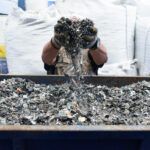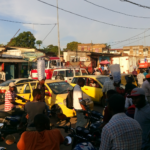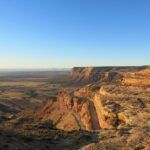Bulletin of the Atomic Scientists and Princeton University to Host White House Science Director John Holdren at Symposium on “Speaking Knowledge to Power”
By John Mecklin | March 26, 2014
Bulletin Media Contact: Janice Sinclaire, [email protected]
CHICAGO– March 25, 2014–The Bulletin of the Atomic Scientists and the Woodrow Wilson School of Public and International Affairs at Princeton University will host a symposium that explores the role of scientists as policy advisors and public watchdogs in a society that often has difficulty differentiating science from sound bites. The symposium, titled “Speaking Knowledge to Power,” is scheduled for April 9, 2014, from 1:30 to 4 p.m., and will feature a keynote address by John Holdren, director of the White House Office of Science and Technology Policy.
A panel discussion will be moderated by the Bulletin’s Executive Director Kennette Benedict. Panelists include Allison Macfarlane, chair of the U.S. Nuclear Regulatory Commission; Christopher Chyba, Princeton University; and Frank von Hippel, Princeton University.
Since World War II and the extraordinary effort of physicists, engineers and others to build the first atomic bomb, scientists have taken up the special burden of explaining the effects of the dangerous and world-altering technologies that have produced nuclear weapons and climate change. They created organizations like the Bulletin of the Atomic Scientists to bring knowledge of these and other powerful technologies to a broad public in efforts to inform and protect societies from the worst effects of these inventions. “Despite political attacks and a sometimes apathetic public, scientists have sounded the alarm and sought solutions that can protect us from our own inventions, if we will only listen and act,” Benedict said.
Scientific knowledge has contributed to break-through international treaties that have controlled nuclear weapons, prevented their proliferation and secured materials against theft and abuse. Biologists and chemists were involved in successful efforts to ban chemical and biological weapons and implement cooperative agreements. Since the 1950s, scientific knowledge has also informed the public about the consequences of releasing greenhouse gases into Earth’s atmosphere.
The symposium will be held in Dodds Auditorium at Princeton University's Woodrow Wilson School. The event is free and open to the public.
About the Bulletin of the Atomic Scientists:
Founded in 1945 by University of Chicago scientists who helped develop the first atomic weapons in the Manhattan Project, the Bulletin of the Atomic Scientists informs policy makers and citizens about the risks to humanity from nuclear weapons, nuclear energy, and climate change, by bridging the gap between technical experts and lay audiences. Its Doomsday Clock is a universally recognized indicator of the world's vulnerability to catastrophe from nuclear weapons, climate change, and other technological threats to humanity. It won a National Magazine Award for General Excellence in 2007.
Bulletin Media Contact: Janice Sinclaire, [email protected]
Together, we make the world safer.
The Bulletin elevates expert voices above the noise. But as an independent nonprofit organization, our operations depend on the support of readers like you. Help us continue to deliver quality journalism that holds leaders accountable. Your support of our work at any level is important. In return, we promise our coverage will be understandable, influential, vigilant, solution-oriented, and fair-minded. Together we can make a difference.














